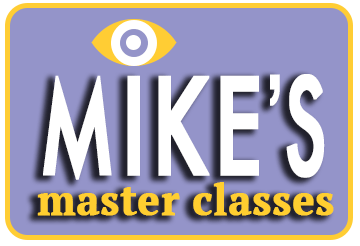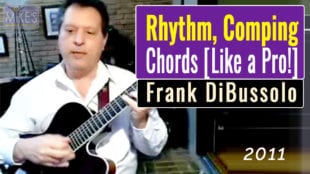Jazz guitar comping is a critical skill for any jazz guitarist. It involves playing chord progressions in a way that supports and enhances the soloist’s improvisation. For advanced guitarists, it’s essential to develop the ability to play more complex chord progressions and incorporate advanced harmonic concepts into your comping.
Here’s a learning path that can help you develop your comping skills to an advanced level:
The foundation of advanced jazz guitar comping is a strong understanding of jazz harmony. To comp effectively, you need to know how to construct and play various chord voicings and understand how to apply them to different chord progressions. Spend time studying chord progressions, particularly those found in standard jazz repertoire, such as “Autumn Leaves,” “All the Things You Are,” and “Giant Steps.”
Learn how to play common chord progressions in different keys using various chord voicings. Practice playing chords in different inversions, and experiment with different chord substitutions to create more colorful and interesting harmonies.
Rhythm is the backbone of jazz, and it’s no different for jazz comping. As an advanced guitarist, you need to develop a strong sense of timing and rhythm. Practice playing with a metronome or drum machine to develop precise timing. Start with simple chord progressions and gradually increase the tempo.
Experiment with different rhythms and syncopations, such as playing off-beat accents or using rhythmic patterns that mimic the soloist’s phrasing. The more you practice, the more comfortable you will become with different rhythms, and the more versatile your comping will become.
Listening to and studying the playing of great jazz guitarists is an essential step in developing your comping skills. Study the recordings of guitarists like Wes Montgomery, Jim Hall, and Joe Pass, paying attention to their comping choices, chord voicings, and rhythmic approaches. Analyze how they support the soloist’s improvisation and the role that comping plays in the overall sound of the ensemble.
Try to replicate the playing of these great guitarists in your own playing, using their ideas as a starting point for your own exploration and experimentation.
Once you’ve mastered the basics of jazz harmony, it’s time to incorporate more advanced harmonic concepts into your comping. This includes using chord substitutions, altered chords, and extended harmonies like 9th, 11th, and 13th chords.
Practice playing complex chord progressions, such as those found in tunes like “Giant Steps” or “Countdown,” and experiment with different chord substitutions and harmonic devices. The more you practice, the more comfortable you will become with these concepts, and the more interesting and sophisticated your comping will become.
Playing with other musicians is an essential part of developing your jazz comping skills. As an advanced guitarist, you should seek out opportunities to play with other musicians who are more experienced than you. Pay attention to their comping choices and the harmonic and rhythmic devices they use.
Playing with other musicians also provides an opportunity for you to experiment with new ideas and approaches to comping. As you play with different musicians, you’ll begin to develop your own style, incorporating the ideas and techniques that work best for you.
Developing advanced comping skills on jazz guitar takes time, patience, and practice. By mastering jazz harmony, working on rhythmic precision, studying the playing of great jazz guitarists, incorporating advanced harmonic concepts, and playing with other musicians, you can take your comping skills to the next level.
Remember, the most important thing is to keep practicing and experimenting. Jazz is a constantly evolving art form, and there’s always something new to learn and explore. Don’t be afraid to take risks and try new things, even if they don’t always work out. With time and practice, you’ll develop a deep understanding of jazz harmony and the ability to create dynamic and supportive comping that enhances the overall sound of any jazz ensemble.
In summary, here are the five steps to developing advanced jazz guitar comping skills:
- Master jazz harmony by studying chord progressions and different chord voicings.
- Work on developing precise timing and rhythm.
- Study the playing of great jazz guitarists and incorporate their ideas into your own playing.
- Incorporate advanced harmonic concepts like chord substitutions and extended harmonies.
- Play with other musicians to develop your own style and experiment with new ideas.
By following this learning path, you’ll be well on your way to becoming an advanced jazz guitarist with exceptional comping skills.



















